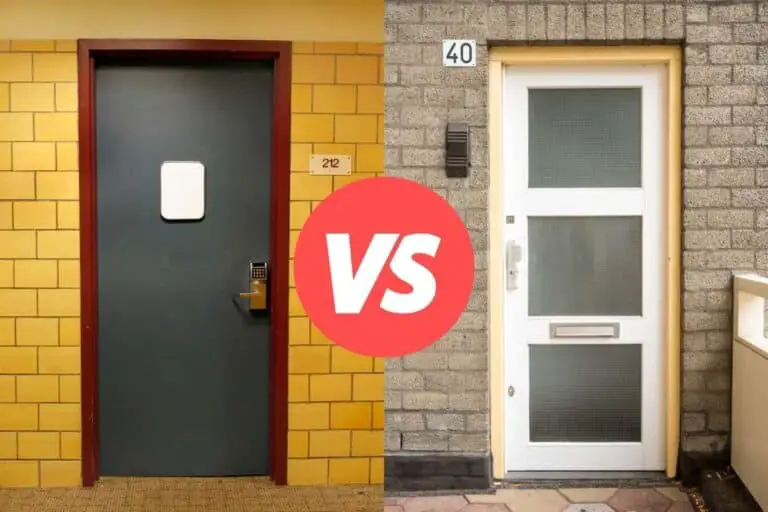Do College Campuses Have Curfews? It Depends.
It’s very rare to find an explicitly stated curfew on college campuses in the United States. The university culture is built around the idea that students should be treated as adults and are free to come and go as they please. However, colleges and universities will often have various policies in place when it comes to late-night activities in the residence halls and other buildings.
College campuses don’t have curfews. Instead, you’ll find quiet hours, restrictions on visitors to the residences at night, and limited access to other parts of campus. None of these are explicit curfews, but they help shape the behavior and movement of students at night.
In the rest of this article, we’ll dive deeper into common policies and restrictions you can expect to find on a college campus. We’ll see how colleges can restrict the movement of their students at night and when, although rarely, actual curfews are put into use.

Nighttime Policies and Restrictions
Every college has its own policies when it comes to late-night comings and goings on campus. However, college campuses generally don’t have explicitly stated curfews. If you’re a student, you’re usually free to move about as you wish. But specific policies might influence your decision to do so.
Residence Hall Access
If you’re living on campus, there might not be a specific curfew, but there’ll likely only be certain groups that are allowed to freely enter the dorms. If you’re a student residing in a dorm, you’ll likely use your student ID or another keycard to enter your dorm at any time.
If you want to bring a friend or a guest with you into the dorm, you’ll likely face additional restrictions.
Depending on your dorm, it might not be allowed at all to bring guests in after hours. Other colleges have a sign-in system where you’re allowed a certain number of guests as long as they sign in when they enter the dorm and sign out when they exit.
Some residences will completely prohibit overnight guests.
There can also be restrictions on guests when it comes to their gender. The specifications of these late-night policies will change from campus to campus, so it’s important to check with your resident assistant (source).
Quiet Hours
It’s also normal for dorms to have certain quiet hours. While these hours aren’t an actual curfew, this period of time will likely restrict the movement and behavior of the students. These are often only set during the weekday, encouraging quiet time to study during the evening and a good environment to sleep in at night.
Quiet hours are typically lifted on the weekend, but this will also vary from campus to campus. It’s important to check and see what the rules are for your specific residence.
Access to Other Parts of Campus
Some universities leave their libraries, study areas, and workspaces open to students at all hours of the night. For many students, heading to the library at 2 am is a common practice. If your college leaves buildings accessible to students 24/7, it can feel like the campus is curfew-free.
However, if your college restricts access to these types of buildings, it can feel like a de facto curfew even though it’s not an official one. Depending on your campus, you might be rather isolated without a car or other transportation.
If the facilities are closed at night, it can feel like a curfew since you don’t have much freedom to move around.
Explicitly Stated Curfews
Rarely, you might come across a strict curfew on a college campus. This is usually limited to more extreme military or religious institutions. However, curfews have been popping up more recently as a response to bringing students back on campus following the pandemic.
While this is still a rare occurrence, some colleges are introducing curfews as part of the precautions on campus to limit the spread of the pandemic. Students must be inside their residences during curfew hours and abide by the other social distancing precautions.
For more information on these type of curfews, you can check out this video on YouTube:
Motivations for Policies and Restrictions
Although a college or university might know that the student body won’t accept an explicitly stated curfew, it’s still in the school’s best interest to help keep the students on track. It’s advantageous for the school to keep their ability to retain students and get them to graduation.
Many schools see these late-night policies as a softer way to help keep students on track.
Some students can be overwhelmed when faced with all the freedom that can come with freshman year, which can lead to behaviors that aren’t particularly focused on classwork. Quiet hours, restrictions on visitors, and other policies can help set the responsible academic tone.
Additionally, by restricting the ability to go to a friend’s dorm at night, schools encourage students to settle into their own living situation.
By encouraging students to be in their own building after a certain time, students have a chance to get to know their neighbors. This can lead to friendships, study partners as well as a greater sense of community.
Finally, there’s the matter of safety.
Many of these restrictions are also put in place to keep students safe and secure during their time on campus. In addition to restrictions, many college campuses install emergency call buttons around campus in order to alert security to any threatening situations (source). There may even be hidden cameras installed throughout the campus to monitor for student safety.
Final Thoughts
When heading off to college, you might be wondering how free you’ll actually be living and studying on campus. While college campuses rarely use explicit curfews, you’ll likely have to abide by nighttime policies and restrictions. These may impact your ability to move and socialize after-hours.
However, college campuses still view their students as adults and work to treat students as individuals with the freedom to make their own decisions.
Recommended Reading:







